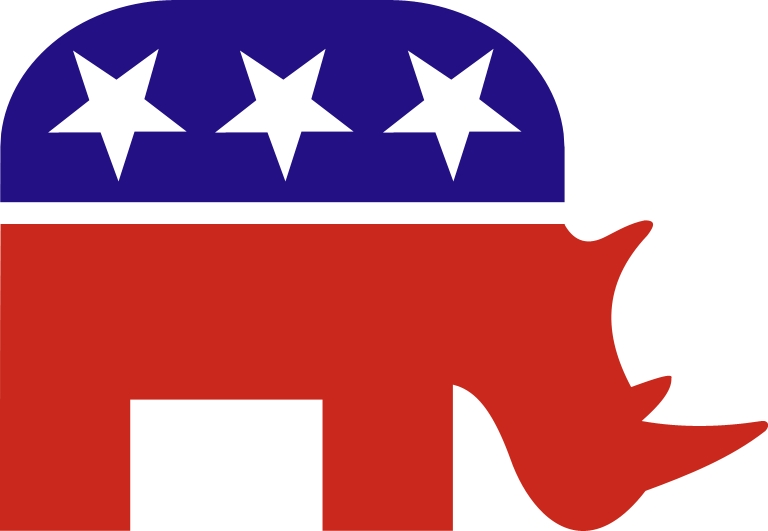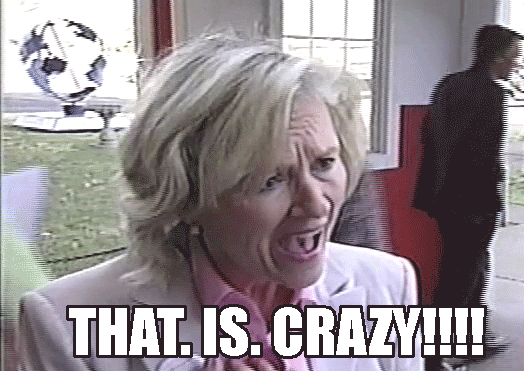Betrayal: Oklahoma Senate passes National Popular Vote bill
The price of liberty is eternal vigilance.
If you thought you could relax because the Republicans are in charge at the State Capitol and Oklahoma Republicans have a conservative party platform, remember that there are lobbyists giving our friends at the Capitol one side of the story. We in the grassroots have to watch every bill and every vote. We have to be in our legislators' faces as much as the lobbyists are.
On Wednesday, the National Popular Vote bill (SB 906) passed the State Senate by a vote of 28-18. All 18 nay votes were Republicans, but another 16 voted with all 12 Democrats in favor of the bill.
The NPV bill, if it is passed by the House and signed by Gov. Fallin, would add Oklahoma to the list of states promising to award all of our electoral votes to the winner of the largest share of the national popular vote, rather than the winner of the popular vote in Oklahoma. Under the terms of the compact, once states with an aggregate of 270 electoral votes approve the compact, it will go into effect and the winner of the national popular vote will be guaranteed enough electoral votes to win the presidency.
 I'm told that Saul Anuzis, a consultant for the NPV movement and the former Republican State Chairman in Michigan, was working the corridors for the bill. According to news reports, Anuzis got flack for using the official RNC logo on a letter backing NPV because it hinted that the RNC supported his efforts. Anuzis lost re-election as Michigan's Republican National Committeeman in 2012, and his support for NPV is credited as a major factor in his defeat. Saul Anuzis and his colleagues persuaded some of our friends in the Senate that NPV could improve the Republican Party's chances. Never mind that the NPV movement is funded and run by leftists who are hardly likely to back an idea that would help conservatives win the White House.
I'm told that Saul Anuzis, a consultant for the NPV movement and the former Republican State Chairman in Michigan, was working the corridors for the bill. According to news reports, Anuzis got flack for using the official RNC logo on a letter backing NPV because it hinted that the RNC supported his efforts. Anuzis lost re-election as Michigan's Republican National Committeeman in 2012, and his support for NPV is credited as a major factor in his defeat. Saul Anuzis and his colleagues persuaded some of our friends in the Senate that NPV could improve the Republican Party's chances. Never mind that the NPV movement is funded and run by leftists who are hardly likely to back an idea that would help conservatives win the White House.
Grassroots conservatives know, but our friends in the Senate forgot, that a National Popular Vote would allow the votes of Chicago cemetery inhabitants to cancel the votes of conservative Oklahomans. A presidential election under our current system is essentially 51 separate elections*, and that acts as a firewall against the impact of voter fraud. Under the current system, voter fraud in Chicago, for example, could only run up the score in Illinois; it couldn't undermine results in other states.
 Our friends in the Senate forgot that the National Popular Vote creates an incentive for voting in multiple states in the same election.
Our friends in the Senate forgot that the National Popular Vote creates an incentive for voting in multiple states in the same election.
Our friends in the Senate forgot that the National Popular Vote undermines the fundamental constitutional principle that the United States is a Union of States. They forgot that NPV and eliminating the electoral college has been a dream of the Left for decades. Getting Oklahoma on board -- the reddest state in the nation, the state where all 77 counties voted for the Republican nominee in 2004, 2008, and 2012 -- will make it easier for the NPV lobbyists to convince other Republican-dominated states to go along. Oklahoma would be the first "red state" to approve NPV.
Our friends in the Senate forgot the conservative Oklahoma voices -- people they know and trust! -- who have been warning them for years about this plan, its constitutional and practical flaws, the danger it poses to the integrity of our election system. Steve Fair, Oklahoma's respected Republican National Committeeman, has been writing against NPV since at least 2011. The Oklahoma Republican Party platform, written by party grassroots activists from across the state and approved by the state convention, has been on record against NPV since at least 2011, renewing their opposition in the most recent platform in 2013. Fellows of the Oklahoma Council for Public Affairs (OCPA) have been writing against NPV for years. I wrote a fairly scathing article about the NPV bill filed in 2013.
Our friends in the Senate forgot the conservative voices beyond Oklahoma warning of the dangers of NPV. In 2004 the Heritage Foundation laid out the advantages of the Electoral College for stable government:
Presidential candidates must build a national base among the states before they can be elected. They cannot target any one interest group or regional minority. Instead, they must achieve a consensus among enough groups, spread out over many states, to create a broad-based following among the voters. Any other course of action will prevent a candidate from gaining the strong base needed to win the election.
In 2006, Pete du Pont, former Republican governor of Delaware and a brilliant public policy analyst, made the case in a Wall Street Journal op-ed that the National Popular Vote would focus presidential campaigns on the major urban agglomerations on the coasts, to the detriment of Oklahoma and the rest of Flyover Country. He pointed out the likelihood of multi-candidate races, "winners" with tiny minorities of the vote, and no provision for a runoff. He reminded that a race as close as a half-million votes (barely three per precinct) could trigger a nationwide recount 50 times as chaotic as Florida in 2000.
Second, in any direct national election there would be significant election-fraud concerns. In the 2000 Bush-Gore race, Mr. Gore's 540,000-vote margin amounted to 3.1 votes in each of the country's 175,000 precincts. "Finding" three votes per precinct in urban areas is not a difficult thing, or as former presidential scholar and Kennedy advisor Theodore White testified before the Congress in 1970, "There is an almost unprecedented chaos that comes in the system where the change of one or two votes per precinct can switch the national election of the United States."Washington state's 2004 governor's race was decided by just 129 votes. A judge found 1,678 illegal votes were cast, and it turned out that 1,200 more votes were counted in Seattle's King County than the number of people recorded as voting. This affected just Washington state, but in a direct national election where everything hangs on a small number of urban districts, such manipulations could easily decide presidencies.
The Cato Institute published a policy analysis of NPV in 2008:
The proposal eliminates states as electoral districts in presidential elections by creating a national electoral district for the presidential election, thereby advancing a national political identity for the United States. States with small populations and states that are competitive may benefit from the electoral college. Few states clearly benefit from direct election of the president. NPV brings about this change without amending the Constitution, thereby undermining the legitimacy of presidential elections. It also weakens federalism by eliminating the role of the states in presidential contests. NPV nationalizes disputed outcomes and cannot offer any certainty that states will not withdraw from the compact when the results of an election become known. NPV will encourage presidential campaigns to focus their efforts in dense media markets where costs per vote are lowest; many states now ignored by candidates will continue to be ignored under NPV. For these reasons, states should not join the National Popular Vote compact.
Our friends in the Oklahoma Senate forgot all that. They need to be reminded, and we need to remind our friends in the Oklahoma House, too.
And one more thing: Isn't there something fundamentally wrong about having an institution enshrined in our constitution, but then using legislation to bypass it and render it as a dead letter?
If you're unhappy with the state senators who supported SB 906, please contact them politely, ask why they voted the way they did, explain the problems with National Popular Vote, and ask them to issue a statement retracting their vote. The Senate vote is a done deal, but statements of regret could influence the House in the right direction. Click the link to see how your senator voted.
Next Friday, February 21, 2014, State Senate President Pro Tempore Brian Bingman will speak at the Tulsa Republican Club's monthly luncheon at the Summit Club on the 30th floor of the Bank of America Building, 15 W. 6th Street in downtown Tulsa. (Buffet lunch is $20; validated parking available in the building's garage.) Bingman voted for the National Popular Vote bill; as head of the Senate, he had the power to stop it. This might be a good opportunity to talk (politely!) with him about his vote.
 I'm puzzled and distressed. What kind of political force would induce this decision on the part of so many Republican state senators? How could they forget what their political allies have been saying in opposition to NPV and instead listen to an out-of-state lobbyist? There aren't any grassroots conservatives agitating for this measure. Why are our legislators treating this as a priority?
I'm puzzled and distressed. What kind of political force would induce this decision on the part of so many Republican state senators? How could they forget what their political allies have been saying in opposition to NPV and instead listen to an out-of-state lobbyist? There aren't any grassroots conservatives agitating for this measure. Why are our legislators treating this as a priority?
Some are suggesting that we need a recall provision in our State Constitution. Term-limited legislators may see potential future employers as the constituency they need to please, rather than the voters who elected them. Or perhaps we could have stronger laws against the revolving door: If you become a lobbyist, you (and anyone married to you) would forfeit your state pension.
MORE: In August 2011, Steve Fair asked and answered Who are the people behind the National Popular Vote Interstate Compact (NPVIC)?:
The Chairman is Dr. John R. Koza, the inventor of the scratch off lottery ticket, and twice a Democrat elector in California. Dr. Kova is a good friend of Al Gore, who won the popular vote in 2000 but lost the electoral vote count to George W. Bush.Barry Faden, a Democrat, is the President of NPVIC. He is a San Francisco attorney who supported John Kerry in 2004. He contributed $2,000 to Kerry according to campaignmoney.com.
Board members for NPVIC are Tom Golisano, the owner of Paychex, an HR company for small business and the owner of the NHL's Buffalo Sabers. In 2008, Golisano, a registered Independent in New York state, gave one million dollars to the Democrats for their national convention. Chris Pearson is State Representative in Vermont. He is a member of the Progressive Party, one of only 6 in the 150 member body. Stephen Siberstein is a California Democrat who contributed $250,000 to the Center for American Progress, a left wing think tank.
NOTES:
*Actually 56 separate elections, taking into account the allocation of electoral votes by congressional district in Nebraska and Maine.
1 TrackBacks
Listed below are links to blogs that reference this entry: Betrayal: Oklahoma Senate passes National Popular Vote bill.
TrackBack URL for this entry: https://www.batesline.com/cgi-bin/mt/mt-tb.cgi/7129
Oklahoma State Senator Gary Stanislawski (R-Tulsa) has issued a statement recanting his support for SB 906, and expressing regret for his vote for the bill that would add Oklahoma to the National Popular Vote Interstate Compact. The last several years ... Read More
Thank you, Michael Bates for all your research on this horrible prospect. Like so many other Oklahomans, I had no idea this bill was even being considered by our legislature. I only wish you could manage to spread the word much further than you have so far. I am spreading it through my meager stable of social media contacts.
Hi Michael.
As you know, I work with the League of Women Voters, and our national organization does have a position in support of the direct election of the President.
The last time the League studied this issue (direct election or NPV) we invited political scientists to come talk to our Tulsa chapter. They were decisively and unanimously opposed.
However, whatever system we use, Oklahoma is not likely to be "in play" for future presidential elections.
Between 2009 and 2012, we had no -- zero -- presidential campaign stops in Oklahoma. I think candidates wisely spend campaign dollars where they will be likely to influence swing votes. And Oklahoma is not one of those places.
Thanks for your comment, Sheila.
I doubt that NPV or direct election would be likely to attract any more general election campaign visits. The focus of an NPV election will be the media markets with the highest number of persuadable voters. Not only are Oklahoma's media markets small (OKC is 41st, Tulsa is 60th, Lawton-Wichita Falls 144th, Sherman-Ada 161st), but we seem to be divided between straight-ticket Republican voters, straight-ticket Democratic voters, and Democratic social conservatives who are alienated by the national party's platform -- they might vote Democrat locally but never for president.
If, at some time in the future, the national political debate shifts in such a way that Oklahoma becomes a swing state, Oklahoma would still be more valuable as a block of 7 electoral votes than as a source of perhaps 100,000 swing voters.
Oklahoma has not been ignored, however, in the primary process. OSU hosted a major debate of Democratic candidates in 2008. Republican candidates made frequent visits during 2008 and 2012. Being early in the process the last two cycles has worked to our benefit, and our legislators and party leaders should do what they can to keep us there.